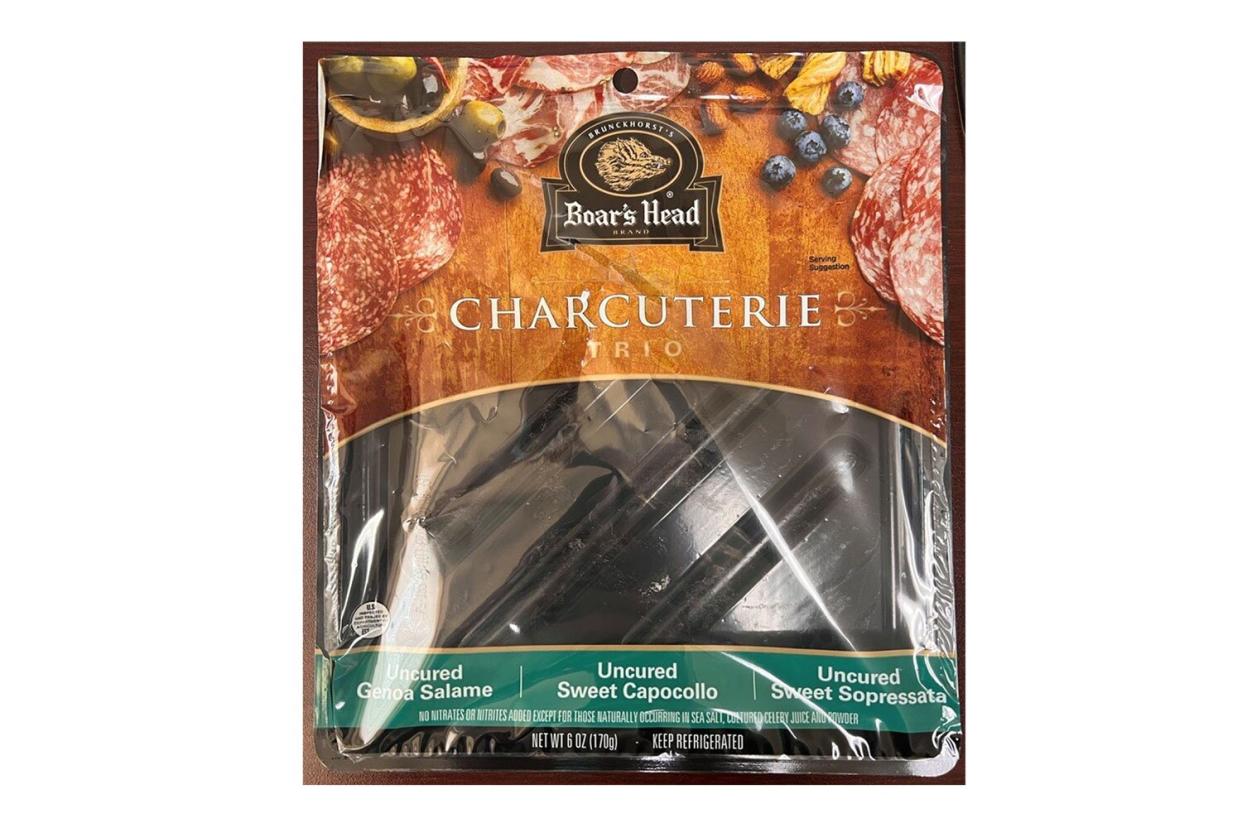50,000 Lbs. of Charcuterie Sausage, Salami and Prosciutto Recalled Over Possible Listeria Contamination

More than 50,000 pounds of sausage typically used to make charcuterie boards have been recalled over possible listeria contamination.
Daniele International LLC, based in Mapleville, Rhode Island, issued the recall for 52,914 pounds of the ready-to-eat sausage as they "may be adulterated with Listeria monocytogenes", according to the U.S. Department of Agriculture's Food Safety and Inspection Service.
The meat was sold under the brand names Fredricks by Meijer Spanish Style Charcuterie Sampler Tray, Boar's Head Charcuterie Trio, Colameco's Primo Naturale Genoa Uncured Salami, Colameco's Primo Naturale Black Pepper Uncured Salami, Gourmet Selection Sopressata, Capocollo, Hard Salami as well as and Del EL Duca's Sopressata, Coppa & Genoa Salami; Calabrese, Prosciutto & Coppa; and Salami, Uncured Pepperoni & Hard Salami.
The meats in question were made between May 23, 2022, and Nov. 25, 2022, and sent to retail stores around the nation between Dec. 23, 2022, and Jan. 17, 2022. They are also labeled with "EST. 54" in the USDA mark of inspection, per the FSIS.
"During recent testing, a possible source of listeria was identified in our conveyor machinery," Chris Bowler, CEO of Charcuterie Artisans says of the recall in a statement shared with PEOPLE. "Our Food Safety team took immediate action to fully sanitize our equipment and test the quality of our products."
RELATED: Target Recalls Children's Pillowfort Weighted Blankets After 2 Girls Died, 4 Other Kids Trapped
Adds Bowler: "While we are confident our products were produced safely, and while we have not received any consumer complaints regarding this concern, we support the decision to issue a recall of potentially impacted products out of an abundance of caution for the health and safety of our customers. We remain committed to providing great food experiences for our charcuterie-loving customers living across the country."
The FSIS said in its announcement that it found out about the concern "during routine inspection activities where Listeria monocytogenes was found on surfaces in which the product came into contact."
It added that there are "no confirmed reports of adverse reactions due to consumption of these products," however, those who suspect they are affected should reach out to their doctor.
RELATED: More Than 10,000 Toddler Bottles and Sippy Cups Recalled Due to Lead Poisoning Hazard
Eating food with L. monocytogenes can lead to listeriosis, which the FSIS said is "a serious infection that primarily affects older adults, persons with weakened immune systems, and pregnant women and their newborns."
Others are "less commonly" impacted, per the FSIS.
It can also lead to "fever, muscle aches, headache, stiff neck, confusion, loss of balance and convulsions sometimes preceded by diarrhea or other gastrointestinal symptoms."
RELATED: Tesla Issues Back-to-Back Recalls on Thousands of Vehicles
A more severe bout can spread past the gastrointestinal track, said the FSIS. It is also a concern for pregnant women as it can potentially cause "miscarriages, stillbirths, premature delivery or life-threatening infection of the newborn."
For the elderly or those with weakened immune systems, listeriosis can be more serious and "sometimes fatal," the agency said.
Never miss a story — sign up for PEOPLE's free daily newsletter to stay up-to-date on the best of what PEOPLE has to offer, from juicy celebrity news to compelling human interest stories.
Those who are considered higher-risk and have flu-like systems within two months of eating the product should contact their healthcare provider immediately, the FSIS urged.
If the product is still in a consumer's refrigerator, the FSIS encouraged them to throw it away or return it to the store instead of eating it.
For the full list of recalled products click here.

 Yahoo Movies
Yahoo Movies 
